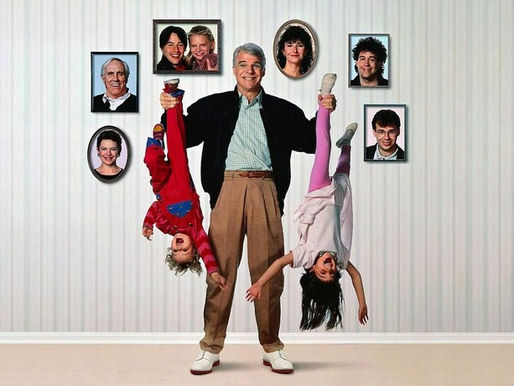top of page
Search
Drama
Classic Drama Films from 1930 - 1999


Parenthood (1989)
Released in 1989, Parenthood is a comedy-drama that manages the rare feat of being both sharply observational and warmly human. Directed by Ron Howard and based on a story developed with screenwriters Lowell Ganz and Babaloo Mandel, the film explores the messy, imperfect, and profoundly emotional world of raising children—and being raised in turn—across multiple generations of one extended family.

Soames Inscker
5 min read


Black Rain (1989)
Black Rain (1989) is a stylish, noir-inflected action thriller directed by Ridley Scott that stands as a moody cultural artifact of late-1980s cinema. Set against the atmospheric backdrop of Osaka, Japan, the film explores themes of cultural clash, moral ambiguity, and personal redemption through the lens of a gritty crime narrative.

Soames Inscker
4 min read


Dead Poets Society (1989)
Dead Poets Society (1989) is a deeply affecting, beautifully crafted coming-of-age drama that has resonated with audiences for decades. Directed by Peter Weir and featuring a career-defining performance by Robin Williams, the film explores themes of individuality, conformity, rebellion, and the transformative power of art—particularly poetry.

Soames Inscker
5 min read


Shirley Valentine (1989)
Shirley Valentine (1989), directed by Lewis Gilbert and based on Willy Russell’s acclaimed stage play, is a poignant, funny, and quietly radical portrait of a woman reclaiming her identity after years of domestic invisibility.

Soames Inscker
4 min read


Scandal (1989)
Michael Caton-Jones’s Scandal (1989) dramatizes one of the most sensational political controversies in modern British history: the 1963 Profumo affair, in which a cabinet minister’s liaison with a young showgirl became the flashpoint for a broader collapse of public trust in the British establishment.

Soames Inscker
4 min read


Born on the Fourth of July (1989)
Oliver Stone’s Born on the Fourth of July (1989) is a harrowing, deeply personal, and politically charged film that stands as one of the most powerful anti-war dramas in American cinema. Based on the autobiography of Vietnam War veteran Ron Kovic, the film charts his journey from patriotic zealot to paraplegic war hero turned radical activist.

Soames Inscker
4 min read


The Taming of the Shrew (1967)
Franco Zeffirelli’s 1967 adaptation of William Shakespeare’s The Taming of the Shrew is a riotous, visually extravagant, and unashamedly theatrical film. Starring Richard Burton and Elizabeth Taylor at the height of their volatile real-life romance, the film turns the Bard’s problematic comedy into an electrifying battle of the sexes, a lush Renaissance spectacle, and a showcase for its leading couple’s magnetic chemistry.

Soames Inscker
4 min read


A Star is Born (1954)
Among the various incarnations of A Star Is Born—a story told across decades of Hollywood history—the 1954 version stands as arguably the most emotionally powerful and artistically accomplished. Directed by George Cukor and starring Judy Garland in a triumphant comeback role opposite James Mason, the film is both a dazzling showbiz musical and a devastating character study about fame, self-destruction, and personal sacrifice.

Soames Inscker
4 min read


Fanny By Gaslight (1944)
A quintessential example of the Gainsborough melodramas that captivated wartime British audiences, Fanny by Gaslight (released in the U.S. as Man of Evil) is a moody, emotionally charged Victorian tale of passion, class, scandal, and survival.

Soames Inscker
4 min read


The Desert Fox: The Story of Rommel (1951)
The Desert Fox is a striking and unusually nuanced war biopic that challenges the wartime cinematic trend of one-dimensional enemy portrayals. Directed by Henry Hathaway, this 1951 film offers a compelling dramatization of the final years in the life of Field Marshal Erwin Rommel, one of Nazi Germany's most respected—and controversial—military leaders.

Soames Inscker
4 min read


Love Story (1944)
In the middle of wartime Britain, when audiences yearned for solace, escapism, and romance, Gainsborough Pictures delivered a series of sweeping melodramas—and among them was Love Story (1944), a film that elegantly combines wartime anxiety, doomed love, and classical music into a richly sentimental drama.

Soames Inscker
4 min read


Pride and Prejudice (1940)
The 1940 film adaptation of Jane Austen’s Pride and Prejudice, directed by Robert Z. Leonard and starring Greer Garson and Laurence Olivier, stands as an intriguing fusion of Regency wit and 1940s Hollywood gloss.

Soames Inscker
4 min read


Lust For Life (1956)
Few biographical films manage to merge the soul of an artist with the artistry of cinema as successfully as Lust for Life, the 1956 adaptation of Irving Stone’s novel on Vincent van Gogh. Under the dynamic direction of Vincente Minnelli and bolstered by a career-defining performance from Kirk Douglas, the film is not merely a retelling of Van Gogh’s life—it is a vivid and compassionate descent into the tormented psyche of a man for whom art was both salvation and suffering.

Soames Inscker
5 min read


Moby Dick (1956)
Adapting Herman Melville’s Moby-Dick—arguably one of the most challenging and symbolically dense novels in American literature—is an ambitious endeavour for any filmmaker. In 1956, legendary director John Huston, fresh off a string of successful literary adaptations (The Maltese Falcon, The African Queen), took on the leviathan.

Soames Inscker
4 min read


Twelve O'Clock High (1949)
Twelve O’Clock High is far more than just another World War II combat film. Released in 1949 and directed by veteran filmmaker Henry King, it is a sober, intelligent, and deeply affecting portrayal of military leadership under extreme duress. It eschews bombast and melodrama in favour of a grim realism and moral nuance that was rare in Hollywood’s post war era.

Soames Inscker
5 min read


The Spirit of St Louis (1957)
In 1927, Charles Lindbergh became a global hero by completing the first solo nonstop flight across the Atlantic Ocean, from New York to Paris. Three decades later, one of Hollywood’s finest directors, Billy Wilder, undertook the ambitious task of translating this defining moment in aviation history to the big screen.

Soames Inscker
5 min read


Skyjacked (1972)
In the golden age of 1970s disaster films—where ordinary people faced extraordinary circumstances—Skyjacked (1972) soared into theatres as one of the earlier examples of aviation thrillers that would culminate in genre landmarks like Airport (1970) and Airport '75.

Soames Inscker
5 min read


El Cid (1961)
El Cid is one of the grandest and most ambitious historical epics of the 1960s, a decade marked by a wave of lavish, widescreen spectacles. Directed by Anthony Mann and starring Charlton Heston and Sophia Loren, the film dramatizes the life of Rodrigo Díaz de Vivar—better known as El Cid—a legendary Spanish hero whose military prowess and moral code helped shape the Reconquista of medieval Spain.

Soames Inscker
5 min read


The Long Hot Summer (1958)
The Long, Hot Summer is a rich and steamy Southern melodrama that simmers with ambition, sexual tension, and familial rivalry. Directed by Martin Ritt in his first major studio feature and boasting a top-tier cast led by Paul Newman and Joanne Woodward, the film is based loosely on the works of William Faulkner but infused with a distinctly Tennessee Williams-style heat and emotional volatility.

Soames Inscker
4 min read


Cat on a Hot Tin Roof (1958)
The story unfolds over a sweltering day in the Mississippi Delta, centred around the birthday celebration of Big Daddy Pollitt (Burl Ives), a wealthy Southern patriarch who is unknowingly dying of cancer. His sprawling estate becomes a cauldron of simmering resentments, lies, and long-repressed truths as his family gathers under the illusion of a joyous occasion.

Soames Inscker
3 min read
bottom of page


